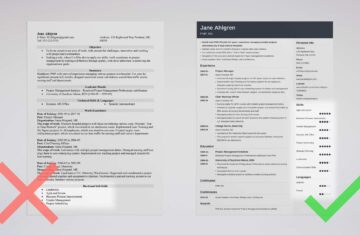Everyone talks a lot about how difficult it is to find the right field of work, whether it is related to a regular job or freelancing, as some see the idea of determining the appropriate field of work as a maze without guidance. If you have questions like:
- What is the most suitable field of work for my next step—starting freelancing?
- Or what career path should I actually take?
Don’t worry, these are all common thoughts that may cross your mind, especially if you’re just starting out in your career or you’ve had some jobs that don’t work for you. The good news here is that you are not alone, as more than two-thirds of the world’s population views their jobs only as things that must be accomplished in order to be able to spend on themselves and meet their demands, so they end up dissatisfied with what they do. In our article today, we will put you on the right path and help you choose the field of work that suits you.
How to Determine the Right Field of Work for You
Here are 10 powerful tips from over a dozen corporate leaders and recruiting experts, who not only went through the process themselves but also pointed many others down the right path by answering this crucial question.
1. Don’t follow your passion alone; follow what works for you and the future.
You must first determine the path on which your passion is heading and what kind of business it will be. Your personal characteristics, in terms of advantages and disadvantages as well as preferences, will play a role in shaping your vision about the field of work that you want to engage in. After that, find out more details about the work you are considering doing, and the matter here goes beyond knowing what you can offer or accomplish by doing this work.
For example, if you are interested in becoming an architect, you may be able to produce a professional design for a skyscraper. But you have to look behind the scenes of that climax of long working hours in front of a computer screen, working for days, a slow and routine work environment, sitting for several hours at the work desk, etc.
Dr. Jamie Lewis Smith, President of the Pixel Leadership Group, says, as a psychiatrist, “I have always been passionate about psychology and studying it, and I have had a strong desire to help people make their lives better.” “Having an impulsive personality that suits me in a fast-changing work environment and working on challenging projects was the best profession.”
2. Find your niche
When you are wondering, “What career is right for me?” It’s best to think of something that combines what you’re good at, what companies need, and what you enjoy doing.
The intersection of these three things is your ideal location, so think about your skills and interests rather than job titles. Also think about the general work environment for the different professions you are considering. Do you prefer commuting all day or working at a desk? Do you like to work according to a fixed schedule or a different schedule every week? Do you enjoy interacting with others or do you prefer individual work over projects? Do not neglect any of the three axes that we mentioned a short while ago for the sake of the high salary, for example, just as fish do not live outside of water, and just as it is impossible to install a piece of a puzzle in its place… You will eventually resign from that job, or you may still be working there, but you are not in good psychological health.
3. Ask yourself some honest questions.
You must rely on thinking and analysis when making your career decisions, as often people base their decisions on emotion, which makes them choose wrongly. So rely on what your mind dictates when answering the following questions honestly.
- What is the most important thing to me in my work? high salary? access to a prestigious administrative position? A stimulating job for my abilities? Better flexibility between work and life? helpful and friendly staff?
- What am I really good at?
- How can I rely on my best self to deliver the best results and advance my career?
- Do I enjoy being an expert or professional in a particular job, or do I prefer to work on a specific part and leave the details to others?
- Do I enjoy constantly switching between roles and tasks and taking on new challenges?
- Do I like exploring new and innovative job prospects, or do I work best in a familiar environment?
- Do I want to become a people manager or not?
- Do I like numbers, or do I prefer marketing and sales concepts and processes?
- Do I like doing presentations and explaining things to people?
Simply decide what matters most to you, and if money is at the top of your list, look for in-demand jobs that offer a lucrative career path, such as technology jobs. And know that it’s okay if you change jobs after a few years; it doesn’t mean that you made the wrong career decision; it’s just that the career path that works for you now may not be the right one for you in 10 years. When you can change your path, this is perfectly acceptable and normal.
4. Ask people and experts already in the field.
Unfortunately, the job you imagine often does not match what it actually looks like, and to avoid becoming frustrated and disappointed by this disparity,You should meet someone who already works in this field, someone you can rely on to give you the full picture behind the scenes of work and tell you what no one will tell you.
When considering career options, be clear and honest about whether your current skill set is a good match for the job or specify what additional training you might need to be fully qualified for the job. And you have to think about what you think it will be like in five years. A recent study revealed that millennials bounce between at least four jobs in their first decade out of college. People usually know what they want to do, but the hard part is constantly developing the skills one needs in the field and then making sure others know about them.
5. Turn your hobby into a profession.
If you have a hobby such as drawing, playing the piano, etc., you can start there to determine your career path. You must look at work as something you want to do for the rest of your life, or at least for many years.
Your positive communication with your hobbies and proper use of them will help you turn them into the most appropriate job without even training, saving you a long path of searching, which is an important point that many people overlook because they do not know what they prefer or want to do and appear strangers to themselves.
6. Prepare yourself to do whatever it takes.
Success stories depict young people full of energy, saying that they can do anything they want and be successful and that nothing can stand in their way just because they are determined to do so. It might be true in an ideal world, but in reality, if you are not willing to do the required work or acquire and master the necessary skills, you will be unhappy and unemployed.
7. Ask people who know you well.
Simply ask your friends or even family what they think you excel at or do well. Asking can at least point you in the right direction. Asking people who know you is the surest way to get an outside perspective on what you excel at when you don’t know or notice that you’re good at it.

8. Learn when to hit the brakes.
Everything is connected; for example, your physical and psychological health is reflected in your career, and having a high ability to recover from the hardships you face daily helps you make sound decisions and think clearly about your career path. To maintain that high capacity and keep your mind healthy, you need to take a break and engage in healthy and enjoyable activities.
9. Assess your financial situation.
Your ability to determine the right field of work for you or change the current field of work may depend on your financial situation, as some career paths require special education, which is sometimes expensive. But you can overcome this obstacle by learning online, depending on educational course platforms such as Coursera, Udemy, and Future Learn. These platforms provide high-quality educational materials provided by professionals and experts in the field, as well as real discounts so that the course amount eventually reaches only $ 10, in addition to providing you with a certificate upon course completion.
You can also search for scholarships and training programs that companies announce from time to time.
10. Determine the level of financial security for the job.
One of the most important things to consider is whether the career path you choose will provide you with an acceptable level of financial security. In other words, will you be able to make enough money to support yourself and your family? Do your calculations to see what your salary should be. Also consider health and social insurance, your retirement pension, and other financial perks granted to you.
Read also: 12 ways to get ideas for writing new articles constantly



